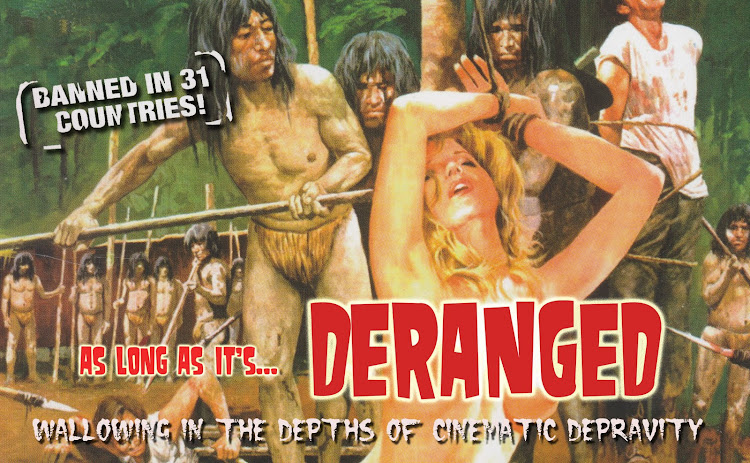
Director Ulli Lommel is probably best known on
Tenderness of the Wolves is based upon the real-life crimes of Fritz Haarman, a German butcher beheaded in 1925 after being found guilty of twenty four murders, the dismembered bodies of his victims sold off as stock to unsuspecting customers in his shop. In order to maximise the costumes and props available to him, Lommel’s film is actually set some years later in post World War II
Disapproved of by his neighbours and acquaintances, Haarman is none-the-less tolerated by his peers due to his continued ability to supply them with an abundance of quality meat during a period of great impoverishment. The film opens with one of Haarman’s neighbours being kept awake by his nocturnal activities, but rather than complaining about the strange banging from her neighbour’s apartment, she pleads through the wall for “just a little of your meat” only to be told that she must wait, as the meat is “scarce” and there is only “some bones.” The neighbour’s actions are symptomatic of many that appear willing to turn the other cheek as long as they continue to benefit from Haarman. Even the local police, suspicious of Haarman’s procurement of young boys, are unwilling or unable to take any action, even going so far as to offer him a job!
Needless to say, Haarman relishes his new position and abuses the trust and authority that his employment provides, offering his apartment as sanctuary for homeless and runaway teenage boys, rather than taking them to the local police station. Once inside the apartment, the youths are servile and compliant to Haarman as if accepting of their fate and the body count rises.
With rumours intensifying that Haarman is the child-murderer, the police realise that they are unable to protect Haarman any longer and finally shake off their reluctance to act. After seducing a teenage boy (used as bait by the police) and returning with him to his apartment, Haarman sexually molests the boy before biting deep into the youth’s neck. Whilst drinking the boys’ blood, the police enter the apartment and bring an end to Haarman’s killing spree although Haarman continues to attempt to assault the boy as he is led away…
Kurt Raab in the role of Haarman gives one of the most compelling portrayals of a serial killer ever commited to film, no doubt assisted by the fact that Raab (according to Lommel) was very much obsessed with Haarman. The scenes of Haarman watching children at play has an extra uncomfortable resonance once we are aware as to what atrocities Haarman is capable of. Lommel’s direction maintains an air of unease throughout despite not being particularly graphic and will strike a chord with anyone familiar with M or The Strangler of Vienna.








